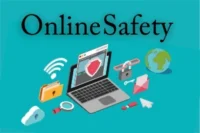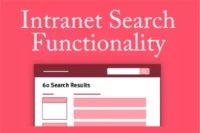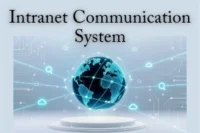What is a VPN and How Does it work?
Published: 26 May 2025
Privacy and security are crucial in today’s digital world. It’s essential to protect your online data, whether you’re at home or using public Wi-Fi. This is where a VPN (Virtual Private Network) comes in. But what exactly is a VPN, and how does it work?
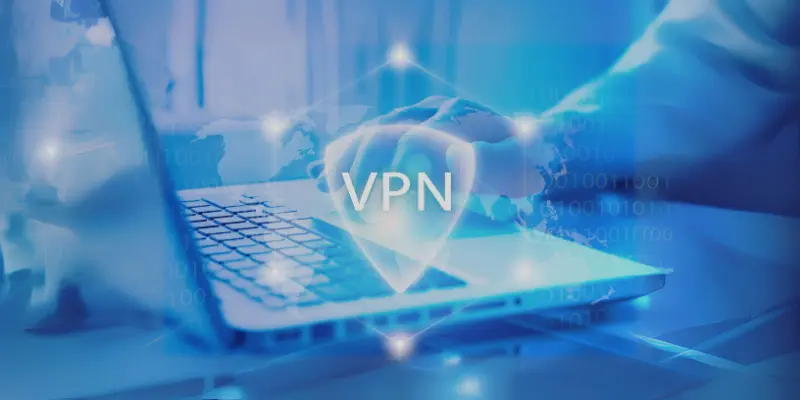
Let’s dive deeper into how a VPN can protect your online presence.
What is a VPN?
A VPN (Virtual Private Network) is a service that helps keep your device (like your phone, tablet, or computer) safe when you connect to the internet. When you use a VPN, your internet activity goes through a private server, which helps protect your information from being seen by others.
Imagine a secure tunnel that keeps hackers, government surveillance, and even your internet provider from watching what you do online. It also lets you change your location, so it looks like you’re browsing from another country or area.
How Does a VPN Work?
A VPN creates a secure, encrypted connection between your device and a VPN server. Here’s how it works:
1. Establish a Connection
Turning on a VPN connects your device to a server in another country or region.
2. Encrypt Your Data
Once connected, all your internet data is turned into unreadable code, which protects your personal information from theft.
3. Route Your Traffic Through the VPN Server
All your online activities, like browsing or messaging, pass through the VPN server. This server acts as a middleman between your device and the internet, hiding your real IP address.
4. Change Your IP Address
The VPN server replaces your real IP address with a new one. This makes it look like you’re browsing from the server’s location, letting you access content restricted by location (such as certain streaming services).
Real-Life Scenarios for VPN Use
- Streaming Content Abroad: Watch your favorite Netflix or Hulu shows even while traveling.
- Public Wi-Fi Safety: Secure your data while using Wi-Fi in cafes, hotels, or airports.
- Remote Work: Access your company network securely from home.
- Avoiding Censorship: Access blocked websites in countries with strict internet regulations.
- Shopping Deals: Get better prices or region-specific offers while browsing internationally.
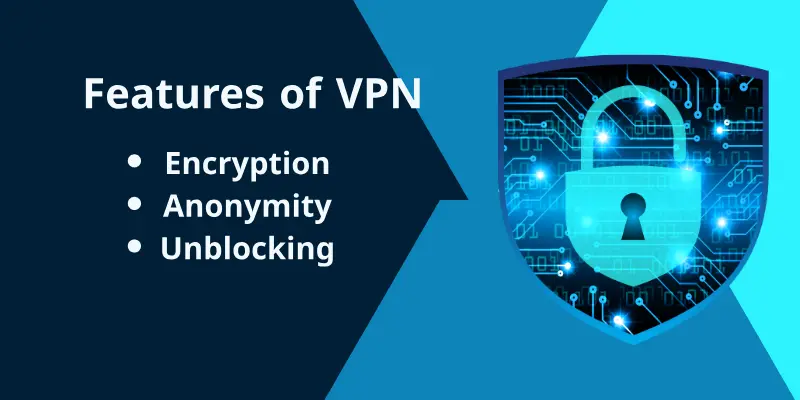
Key Features of VPN
- VPN encrypts your internet traffic.
- Your real IP address is hidden.
- You can access content from different regions.
Why Should You Use a VPN?
A VPN offers several benefits. It enhances privacy by hiding your IP address. It increases security by encrypting your internet traffic. It allows you to watch content on platforms like Netflix and Hulu that is only available in certain countries.
It helps you get around restrictions in areas with censorship. It also keeps your personal information safe when shopping or banking online.
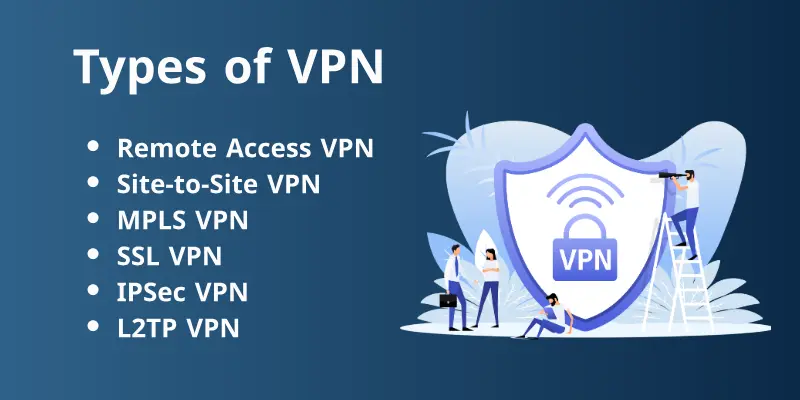
Types of VPNs
Several types of VPNs are designed to serve different purposes and network needs. The following are some of the most common types:
- Remote Access VPN
- Site-to-Site VPN
- MPLS VPN
- SSL VPN
- IPSec VPN
- L2TP VPN
VPN Encryption and Protocols
VPNs use different encryption methods to protect your data. Common encryption protocols include:
- OpenVPN: An open-source protocol, widely regarded as one of the most secure and flexible options.
- IPSec: A popular protocol for securing IP communications over the Internet.
- L2TP: Often used in combination with IPSec to provide better security.
- WireGuard: A newer protocol known for its simplicity, speed, and high performance.
Each protocol offers a different balance of speed and security, with OpenVPN being the most commonly recommended for general use.
Protocol Comparison Table
| Protocol | Security | Speed | Best For |
| OpenVPN | High | Medium | General Use |
| IPSec | High | Medium | Secure Communications |
| L2TP/IPSec | Medium | Medium | Basic Security Needs |
| WireGuard | High | High | Speed + Modern Encryption |
Legal Considerations
Is a VPN Legal?
In most countries, using a VPN is perfectly legal. However, VPN usage may be restricted or monitored in some places, like China, Russia, and the UAE. Always make sure to check your local laws before using a VPN, especially if you’re traveling to a region with strict internet censorship.
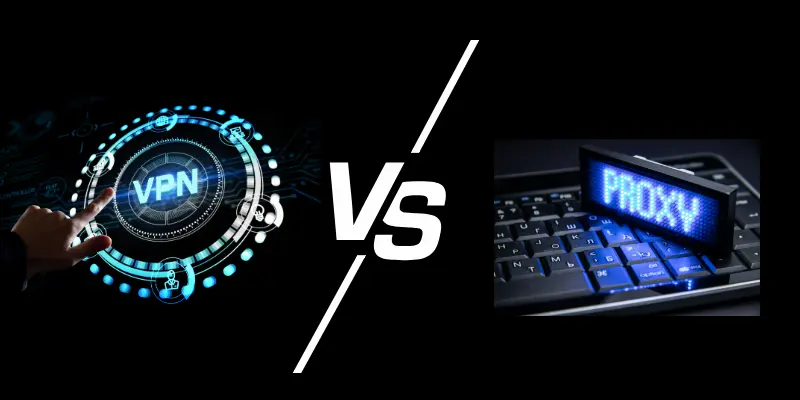
VPN vs Proxy: What’s the Difference?
Both VPNs and proxies can help you access geo-blocked content, but there are important differences:
- VPN: Encrypts your entire internet connection and routes it through a remote server. It provides full privacy and security.
- Proxy: Only works for specific apps or websites (like a browser), and does not encrypt your traffic, making it less secure than a VPN.
Comparison Between VPN and Proxy
| Feature | VPN | Proxy |
| Encrypts Traffic | Yes | No |
| Hides IP Address | Yes | Yes |
| Covers All Apps | Yes | No (browser only) |
| Speed Impact | Medium | Low |
| Security Level | High | Low |
Pros and Cons
Benefits of VPN:
- Enhances online privacy and invisibility
- Secures data during internet browsing, especially on public Wi-Fi
- Bypasses geo-restrictions and censorship
- Protects personal information during online transactions
- Hides your real IP address
- Prevents data tracking by websites and advertisers
- Provides access to region-locked content
Limitations of VPN:
- Can reduce internet speed due to encryption
- Some websites and services may block VPN traffic
- Not all VPNs offer complete security; some may log data
- May require technical knowledge to set up and maintain
- Can be expensive for premium VPN services
- It can sometimes cause connection instability or drops
Recommended VPN Services
Here are a few reliable VPN providers worth exploring:
- NordVPN: Great for security and streaming
- ExpressVPN: Fast, user-friendly, ideal for all devices
- ProtonVPN: Strong no-logs policy, based in privacy-friendly Switzerland
Note: Always review their features, pricing, and logging policies before subscribing.
Conclusion
In conclusion, a VPN is a powerful tool for enhancing your online security and privacy. With so many options available, it’s important to explore the list of VPN services and choose the one that best meets your specific needs, whether it’s for streaming, browsing securely, or accessing restricted content.
I recommend considering factors like speed, reliability, and ease of use when making your choice. Take the time to find the VPN that fits your lifestyle, and you’ll enjoy a safer, more private online experience.
We’d love to hear what you think! Share your experience with VPNs or any questions you have in the comments below. Let’s start the conversation!
Frequently Asked Questions (FAQs)
Here are some important frequently asked questions (FAQs) to help you better understand how VPNs work and why they’re useful.
Yes, there are free VPN services, but they have limitations. These include slower speeds, fewer server options, and weaker security. For better security, faster speeds, and reliable service, a paid VPN is recommended.
Using a VPN can slow down your internet connection slightly because your data has to travel through a VPN server and be encrypted. However, high-quality VPN providers offer fast speeds with minimal impact on performance.
A VPN can make it harder to track your online activities, but no system is perfect. If your VPN provider keeps logs of your activities, there’s still a risk. Choose a VPN with a strict no-logs policy to protect your privacy.
Yes, a VPN is very safe for online banking. It encrypts your connection, which prevents hackers from intercepting your sensitive financial information. However, it’s important to choose a reputable VPN provider and ensure your device has strong security settings.
Yes, using a VPN on your smartphone can improve your privacy. It’s especially helpful when connecting to public Wi-Fi in places like cafes or airports. A VPN protects your data from hackers.
Yes, most VPN providers allow you to use their service on multiple devices simultaneously. This includes phones, tablets, laptops, and even smart TVs. Check with your provider to confirm the number of supported connections.
Yes, many VPNs can unblock region-specific content on streaming platforms like Netflix, Hulu, and BBC iPlayer. However, not all VPNs are effective at bypassing streaming restrictions, so choose one with a proven track record for streaming.
No, most modern VPNs are very user-friendly. They usually offer apps for all major platforms, and setup typically involves just a few clicks. Even beginners can use them easily.

- Be Respectful
- Stay Relevant
- Stay Positive
- True Feedback
- Encourage Discussion
- Avoid Spamming
- No Fake News
- Don't Copy-Paste
- No Personal Attacks

- Be Respectful
- Stay Relevant
- Stay Positive
- True Feedback
- Encourage Discussion
- Avoid Spamming
- No Fake News
- Don't Copy-Paste
- No Personal Attacks


